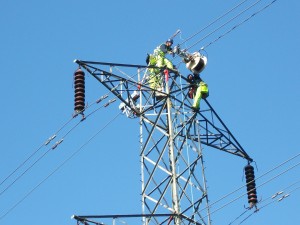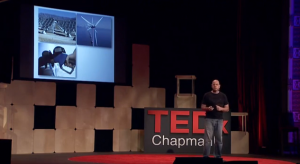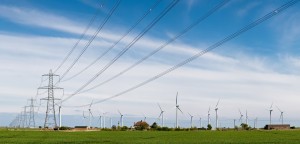587 item(s) were returned.
Member
U.S. House of Representatives
Along with my colleagues Reps. Tom Cole (R-OK) and Matt Salmon (R-AZ), I introduced the Fuel Choice for American Prosperity and Security Act (FCAPS, or H.R. 5107), a bill to promote fuel competition in our transportation sector. In particular, FCAPS aims to: Improve energy and national security by reducing the strategic importance of oil; Save consumers money at the pump by opening vehicles to fuel competition; Spur economic growth by allowing industry to capitalize on more of America’s natural resources; and Reduce the financial burden for automakers and consumers of meeting corporate average fuel economy (CAFE) regulations. Opening cars to… [more]
View InsightUnited States Senator, State of Alaska
Chairman, Senate Energy and Natural Resources Committee
As articulated in Energy 20/20, my blueprint for a new U.S. energy policy conversation, I believe there is a consensus that it is in our national interest to make energy abundant, affordable, clean, diverse and secure. In addressing these goals, too often affordability is ignored – despite the difficult choices increasing energy costs impose on Americans. In particular, low-income households are highly vulnerable to energy prices because energy bills make up a larger percentage of their living expenses. These families are energy insecure, defined as the inability to afford to maintain a home at a reasonable temperature and the loss… [more]
View InsightAs midterm elections quickly approach, questions and predictions continue about which energy issues will garner the most attention over the next two years from Congress and other policymakers and influencers. While some new topics have emerged to dominate energy headlines more recently, other issues, such as nuclear waste management, continue to be relevant. Please share your input on what topics require attention from our federal policymakers. [poll id=”3″]
View InsightPresident
Micro-Utilities, Inc.
An analysis has been made to determine if there would be enough electricity in the US by 2050 to support a carbon-free future to avoid the worst effects of climate change. Assuming that carbon capture and sequestration is not practical, a mix of nuclear and renewable energy power plants was examined. Existing fossil power plants and nuclear plants represent 86% of the electricity that was produced in 2012. By 2050, to be carbon-free, all of these fossil plants would have to be phased out, while all present nuclear plants would have reached the end of their operating licenses. According to… [more]
View InsightFreelance projects of interest
Retired
A National Energy Program (NEP) is proposed to eliminate the gap between U.S. oil consumption and production and significantly reduce green house gas emissions in a decade to place our nation on the road to a sustainable energy future. With domestic natural gas plentiful, eliminating the “oil gap” will achieve energy independence. The international Energy Agency forecasts this gap to be approximately seven million barrels and day (MBD) in 2025 [1]. Forecasts vary from 4-7 MBD depending on source used. Current forecasts are “not real world”; because they are based on continuation of business as usual conditions in an increasingly… [more]
View InsightCo-Founder
Fuel Freedom Foundation
The lack of alternative energy sources to fuel our vehicles and replace expensive oil, jeopardizes U.S. national security, forces Americans to pay more at the pump, and greatly represses our ability to reduce pollution and address climate change concerns. In my state of California, 74% of all emissions – including CO2, toxic pollutants, ozone forming emissions and more – come from petroleum. Oil accounts for 65% of California’s GHG emissions, compared to 33% from natural gas, and less than 2% from coal. Meanwhile, each year, the U.S. spends more than $600 billion to buy oil and oil products, which is… [more]
View InsightAssistant Professor, Energy and Resources Group
University of California, Berkeley
Wind and solar capacity have grown significantly in the last decade, and many believe that significant reductions in carbon emissions require continued expansion of their capacity (see for example recent papers by Jim Williams et al and Jimmy Nelson et al[1]). With the declining cost of wind and solar, the economic case for increasing production from sources whose fuel is free is getting better. But getting these energy sources on to the grid is not without its engineering and economic challenges. Wind and solar production is both variable and uncertain, and grid system operators need to make sure they have… [more]
View InsightMember
U.S. House of Representatives
Two of the most pressing issues facing us today are the need to address the economic costs and public health risks associated with climate change and strengthening the middle class. Over 97 percent of climate scientists agree that our planet is warming, primarily as a result of fossil fuel combustion, and that this warming is already causing more frequent, dangerous, and expensive extreme weather events. At the same time, our middle class is struggling. While the productivity of our economy increased by 75 percent between 1979 and 2012, wage growth for middle class workers increased by only 5 percent during… [more]
View InsightVisiting Fellow
Hudson Institute
A number of scholars, from the left and the right have floated versions of a carbon tax. Henry Paulson has also weighed in, favoring a tax. In theory, a uniform comprehensive carbon tax enforced among all major global emitters might have great advantages. Such a tax, if linked to a stringent accounting system, could be more transparent than any other approach to greenhouse gas control. In contrast to command-and-control schemes, a tax would target abatement resources to where they would be most cost-effective. A tax, unlike the 2009 cap-and-trade bill, would make it harder for proponents to falsely promise both… [more]
View InsightChairman
Foundation for Resilient Societies
Through the Energy Policy Act of 2005, Congress formed a hybrid system for setting electric grid reliability and security standards; a private corporation, the North American Electric Reliability Corporation (NERC), writes grid standards, while a government agency, the Federal Energy Regulatory Commission (FERC) reviews and approves NERC’s standards. FERC and NERC appear to have a close working relationship in jointly developing grid standards. During an April 10, 2014 Senate Energy Committee hearing “Keeping The Lights On—Are We Doing Enough To Ensure The Reliability And Security Of The U.S. Electric Grid?” both Cheryl LaFleur, Acting Chair of FERC, and Gerry Cauley,… [more]
View Insight





